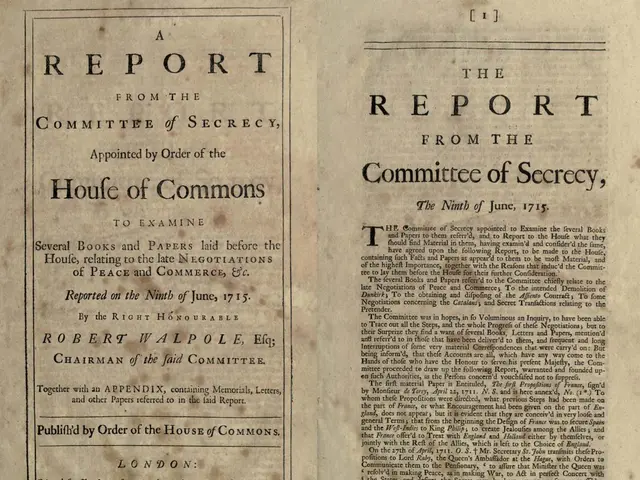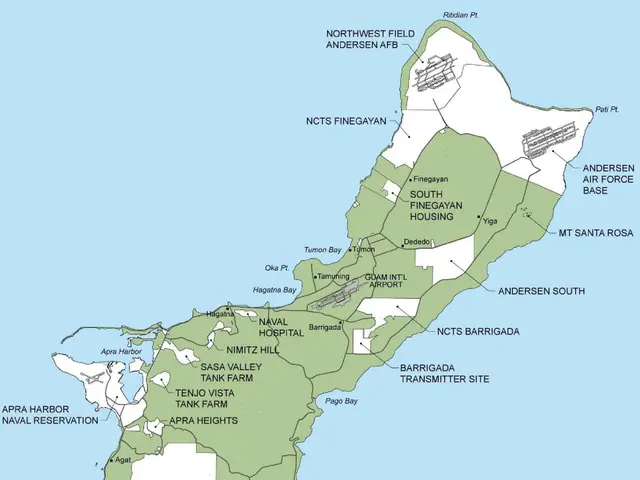UK Economic Uncertainty Attributed to Rachel Reeves, According to Report
Ready to dig into the UK's economic dilemma? Let's break it down.
The UK's economic growth is sluggish, and according to the National Institute of Economic and Social Research (NIESR), it's time to point the finger at Chancellor Rachel Reeves' fiscal policy. The research institute, known as Britain's oldest independent economics think tank, warns that excessive tax increases have left the economy in a "risky and vulnerable position."
In a report that douses cold water on the notion that Donald Trump's tariff policy is to blame for the economic uncertainty, NIESR states that while tariffs have indeed affected business sentiment, they're not the primary culprit for the lacklustre UK economic performance this year.
Instead, underlying cost pressures and subdued confidence, shaped by domestic policy and an uncertain fiscal outlook, are adversely impacting the economy. As a matter of fact, the NIESR report predicts that Reeves may exceed her £9.9bn fiscal rules, with the economy growing slower than expected amid rising costs and a slowdown in domestic demand.
A noteworthy concern raised by the report is the impact of hikes in National Insurance Contributions on hiring. These increases, the report's authors claim, result in a slowdown in hiring and reduced corporation tax receipts from slimmer business profits—a risk that, according to the report, presents a significant threat to the government.
Enough with the endless speculation, right?
The report blames the speculation about the size of the government's fiscal headroom on arbitrary fiscal rules that, it claims, have served the country poorly. NIESR senior economist Ben Caswell argues that the government's "wafer thin" £9.9bn fiscal headroom has led businesses to delay investment decisions due to expectations of further tax hikes.
The opposition seems to agree. Shadow Chancellor Mel Stride criticizes the Chancellor for playing fast and loose with the public finances, as this speculation about future tax hikes stifles the business environment at a time when certainty is desperately needed.
However, the Treasury maintains its commitment to meeting fiscal rules and avoiding any speculation of future painful tax hikes. The government's stance is that it has delivered on contributing to the public finances and rebuilding the NHS, all while protecting working people's paychecks from tax increases. The government even asserts that it's going further and faster for growth, with the number one goal to put more money in working people's pockets.
But, what does the future hold for the UK economy?
The NIESR report suggests that the UK is facing a challenging economic environment in the coming years. With lower-than-expected tax receipts and potential implications for fiscal policy adjustments, it appears that difficult decisions await the Chancellor. Time will tell if these decisions will steer the UK towards a brighter economic future or keep it stuck in a vulnerable position.
- The NIESR report claims that excessive tax increases, such as the National Insurance Contributions hikes, pose a significant threat to the government, as they might lead to a slowdown in hiring and reduced corporation tax receipts from slimmer business profits.
- The opposition, represented by Shadow Chancellor Mel Stride, critiques the Chancellor for playing fast and loose with the public finances, arguing that the speculation about future tax hikes stifles the business environment at a time when certainty is crucial.
- The government asserts that it's committed to meeting fiscal rules and avoiding speculation of future painful tax hikes, while also claiming that it's going further and faster for growth, with the ultimate goal to put more money in working people's pockets.
- Amid lower-than-expected tax receipts and potential implications for fiscal policy adjustments, the NIESR report predicts that the UK is facing a challenging economic environment in the coming years, with difficult decisions awaiting the Chancellor that may determine the UK's economic future.




